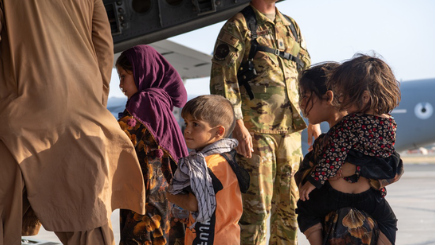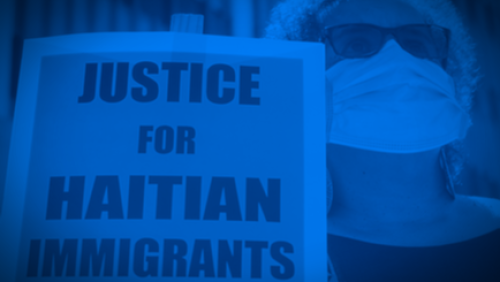This Freedom of Information Act (FOIA) request seeks to uncover information about how the humanitarian parole process and refugee program is working with respect to Afghan nationals. The American Immigration Council filed this request along with International Refugee Assistance Project (IRAP).
What is the Role of Humanitarian Parole in Addressing the Crisis in Afghanistan?
Due to the dire humanitarian crisis that unfolded in Afghanistan after the United States withdrawal of troops from the country, President Biden directed U.S. Department of Homeland Security (DHS) to lead and coordinate efforts across the federal government to support vulnerable Afghans resettle in the United States. Humanitarian parole is a key component of the U.S. government’s efforts to resettle Afghans arriving in the United States as part of the evacuation effort. Afghans who reach the United States after leaving their country may request parole into the United States for a temporary period based on urgent humanitarian reasons. Additionally, Afghans outside the United States can apply for humanitarian parole for themselves or have others apply on their behalf.
Parole allows for temporary lawful presence in the United States but does not confer immigration status. If Afghans receive parole, they are considered applicants for admission and may be able to apply for lawful status in the United States if otherwise eligible.
There is concern, however, that the implementation of humanitarian parole for Afghan evacuees has not been effective. According to media reporting, DHS has processed only a fraction of the applications for humanitarian parole received since July 2021.
Why is this FOIA Important and What Information Does It Seek to Obtain?
There is very little publicly available information about the humanitarian parole adjudication process or the agency’s performance in adjudicating these applications. As service providers work with individuals facing danger in Afghanistan, records to clarify why Afghans face such significant delays in humanitarian parole and refugee processing are necessary.
This FOIA request seeks information about processing of applications for humanitarian parole including data related to humanitarian parole applications filed since January 1, 2020, including the number of humanitarian parole applications received, approved, issued requests for evidence, denied, and still pending. The request also seeks data and guidance regarding fee waiver requests filed in connection with applications for humanitarian parole. Finally, the FOIA asks for records, including guidance and training materials, relating to the processing of asylum seekers and refugees.
The requested information will shed light on USCIS operations, including whether the humanitarian parole program is meeting its goals of providing an essential avenue for protection to Afghan evacuees.




